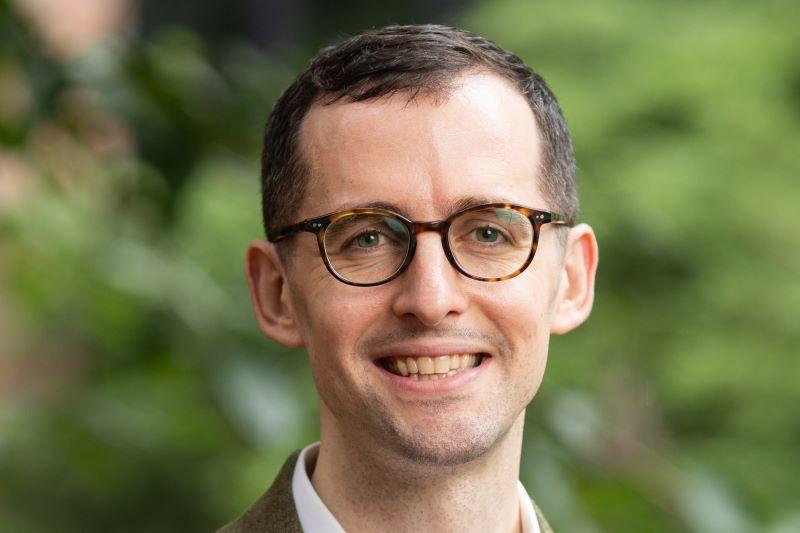-

Hear from Professor Monica Toft
Learn how Professor Monica Toft is shaping the study of global affairs and diplomacy at Fletcher.
Hear from Prof. Toft -

Explore Fletcher academics in action
Fletcher Features offers insights, innovation, stories and expertise by scholars.
Get global insights -
Get application tips right from the source
Learn tips, tricks, and behind-the-scenes insights on applying to Fletcher from our admissions counselors.
Hear from Admissions -

Research that the world is talking about
Stay up to date on the latest research, innovation, and thought leadership from our newsroom.
Stay informed -
Meet Fletcherites and their stories
Get to know our vibrant community through news stories highlighting faculty, students, and alumni.
Meet Fletcherites -

Forge your future after Fletcher
Watch to see how Fletcher prepares global thinkers for success across industries.
See the impact -

Global insights and expertise, on demand.
Need a global affairs expert for a timely and insightful take? Fletcher faculty are available for media inquiries.
Get in Touch
Called to Teach
David C. Logan trains student analysts in U.S.-China relations course

David C. Logan was born to be in school. He grew up in an extended family of educators in New Orleans, and while he would ultimately end up back in the classroom, when he set out for college he had different plans. Enrolling at Grinnell, he pursued his interests in domestic policy and security studies.
His career plans evolved, however, when nearly a thousand miles away from home he got a call from his family that they were evacuating due to Hurricane Katrina. After graduating, he felt called back to contribute to the city’s rebuilding efforts, and he taught middle school United States history for three years. He took to the position quickly and subsequently accepted a similar job halfway around the world. Offered a teaching fellowship with Princeton in Asia, he moved to Shenyang, China, a city between Beijing and the country’s border with North Korea.
There, he taught high school English and coached the debate team. Logan connected so deeply with his school that he stayed for the fellowship’s maximum length. His time spent teaching in China illuminated the next steps in his path with security studies. Upon completing the program, he moved to Beijing, where he studied full time at Tsinghua University and interned with the Carnegie-Tsinghua Center for Global Policy.
“I was very fortunate to work under a Chinese scholar who was focused on essentially the same kind of topics that I'm researching now: U.S.-China relations, and particularly the nuclear dimension of those relations,” said Logan.
U.S.-China Relations: A Case Study
Logan’s interest in security studies first developed during a summer internship in college. In his studies, he had been focused on domestic issues. While at the internship, he connected with a classmate working for a nuclear weapons disarmament think tank. Learning more about nuclear weapons, he felt at once intimidated and called to action—they demanded attention.
“What are the consequences of nuclear weapons?” he said. “What happens when states get nuclear weapons? What are the risks or the drivers that can encourage the use of nuclear weapons? Essentially, how can we decrease nuclear escalation or proliferation risks? I look at that, especially in the U.S.-China context. How can we reduce both the probability of a crisis or conflict in the U.S.-China context, and how can we also reduce the costs of that if it takes place?”
In his U.S.-China relations course this fall, students will think through some of these questions alongside him. Logan finds that the relationship between the two superpowers is an instructive model for students of global affairs to examine.
“It's a little bit of a trope at this point, but it's true that the U.S.-China relationship touches on every aspect of global affairs, whether it's international business, efforts to regulate the use of emerging technologies like artificial intelligence, trying to tackle climate change, or promoting economic development in different parts of the world. There are so many policy domains in which the character of U.S.-China relations will influence success or failure.”
“I think one of the more difficult dynamics that we've seen in the last few years is the growing securitization of the relationship,” he added. “Areas that previously were insulated from the more competitive security dynamics are increasingly being captured by those.”
A Full Circle Moment
Logan’s experience teaching helped cultivate his particular combination of academic interests. Joining the faculty at Fletcher, he now brings what he’s learned from his career in international relations back into the classroom.
In his course, students will get invaluable, practical training by writing policy memos from both a U.S. and Chinese perspective.
“It’s very easy to get into this us versus them dynamic. Students will say ‘we’ when what they really mean is the U.S. government, or really the spokesperson at the State Department,” he said. “It’s important to try to be very specific with our language, because otherwise it encourages this sort of us-them mentality, which makes it more difficult to come up with effective policy solutions.”
Similarly, Logan teaches students to be specific and discerning with sources.
“Sometimes you'll see statements like, the Chinese state media said X; certainly the information environment in China is very different than in the U.S., but there's still variation in terms of policy preferences and the organizational biases of different actors that are involved in making China's foreign and national security policy. I don't want students to take these very isolated data points and think that they represent the direction of a country of 1.4 billion people.”
“Getting them to think more critically about the authoritativeness of different sources makes them better analysts,” he added, “whether they're going off into business and trying to predict whether there's going to be a restructuring of China's domestic economy, or they're going to work in an intelligence agency. Those analytical skills will really carry them beyond just subject matter knowledge.”
Read more about Fletcher’s international security field of study.

